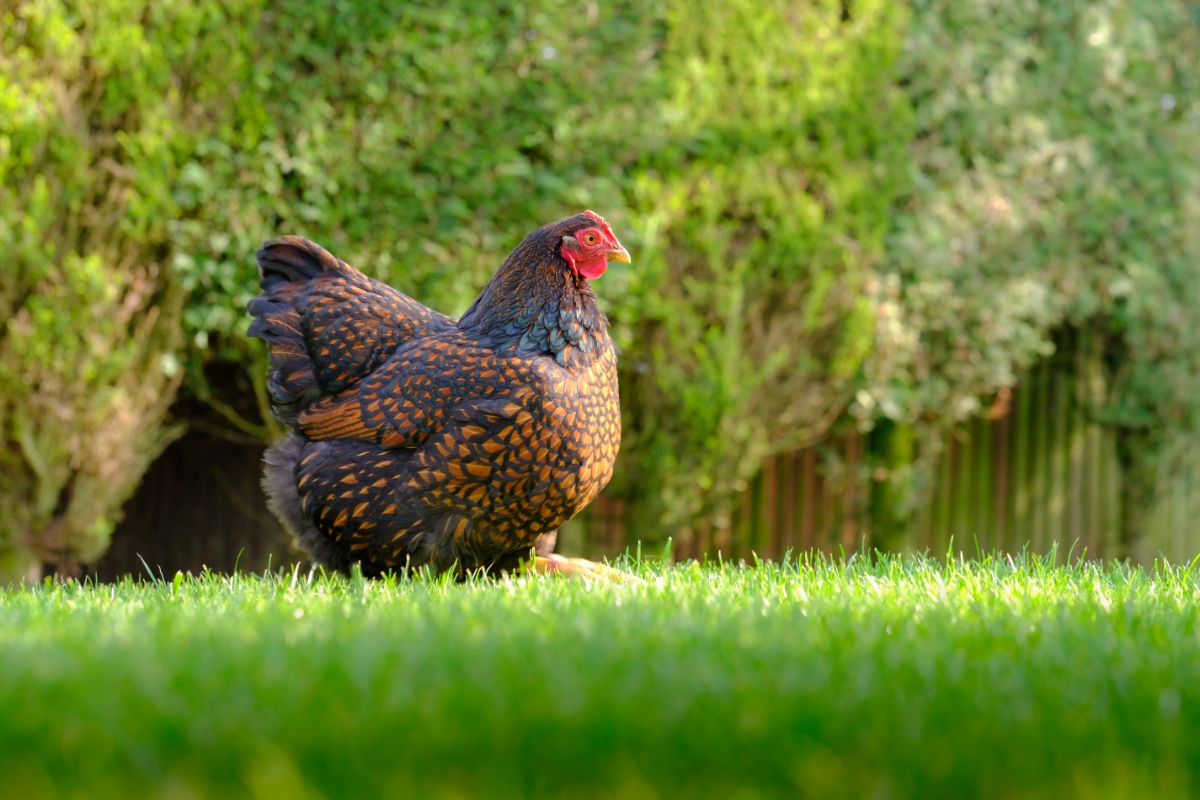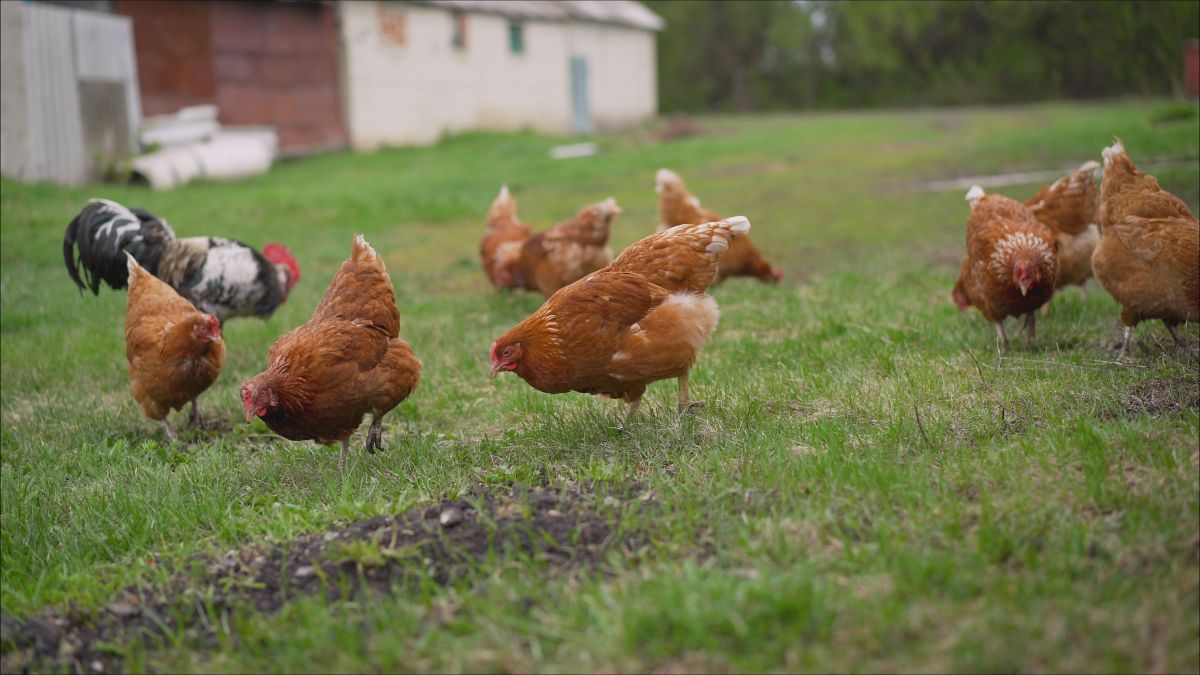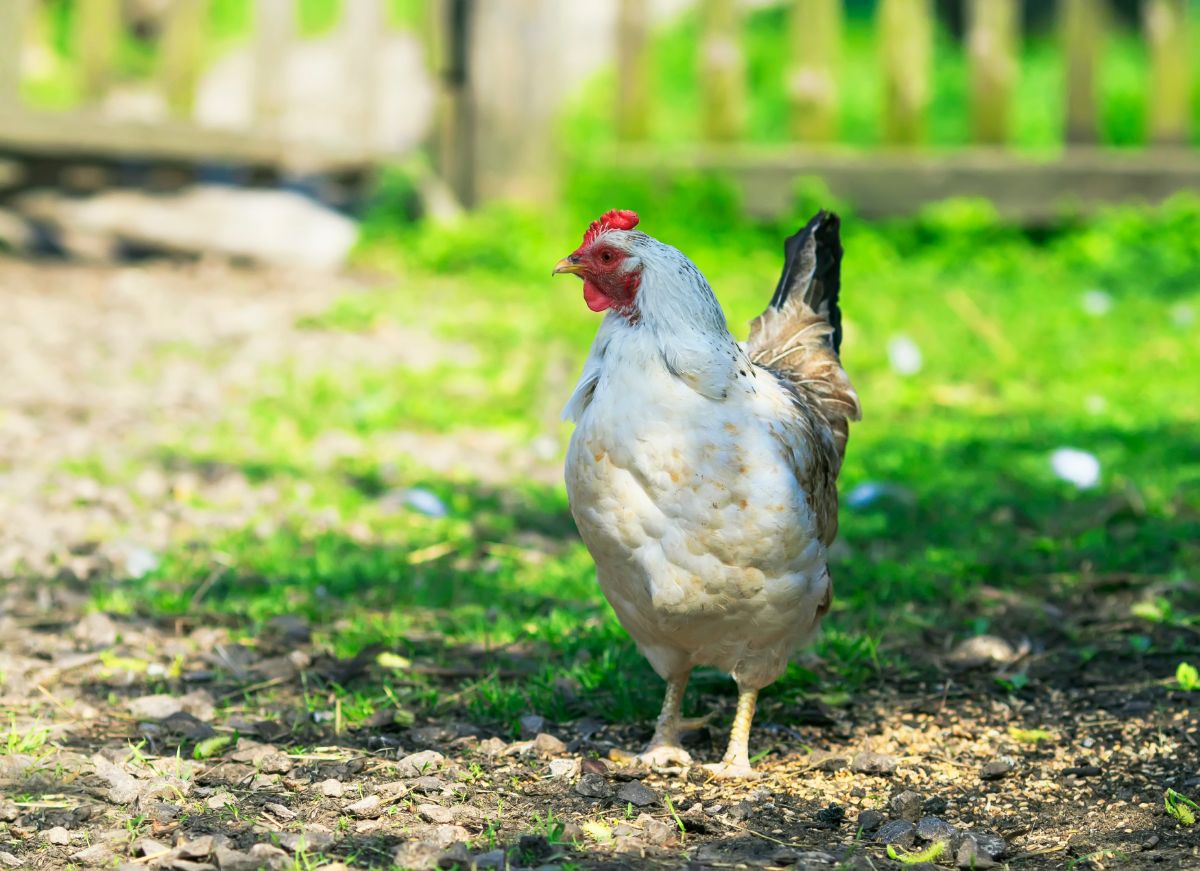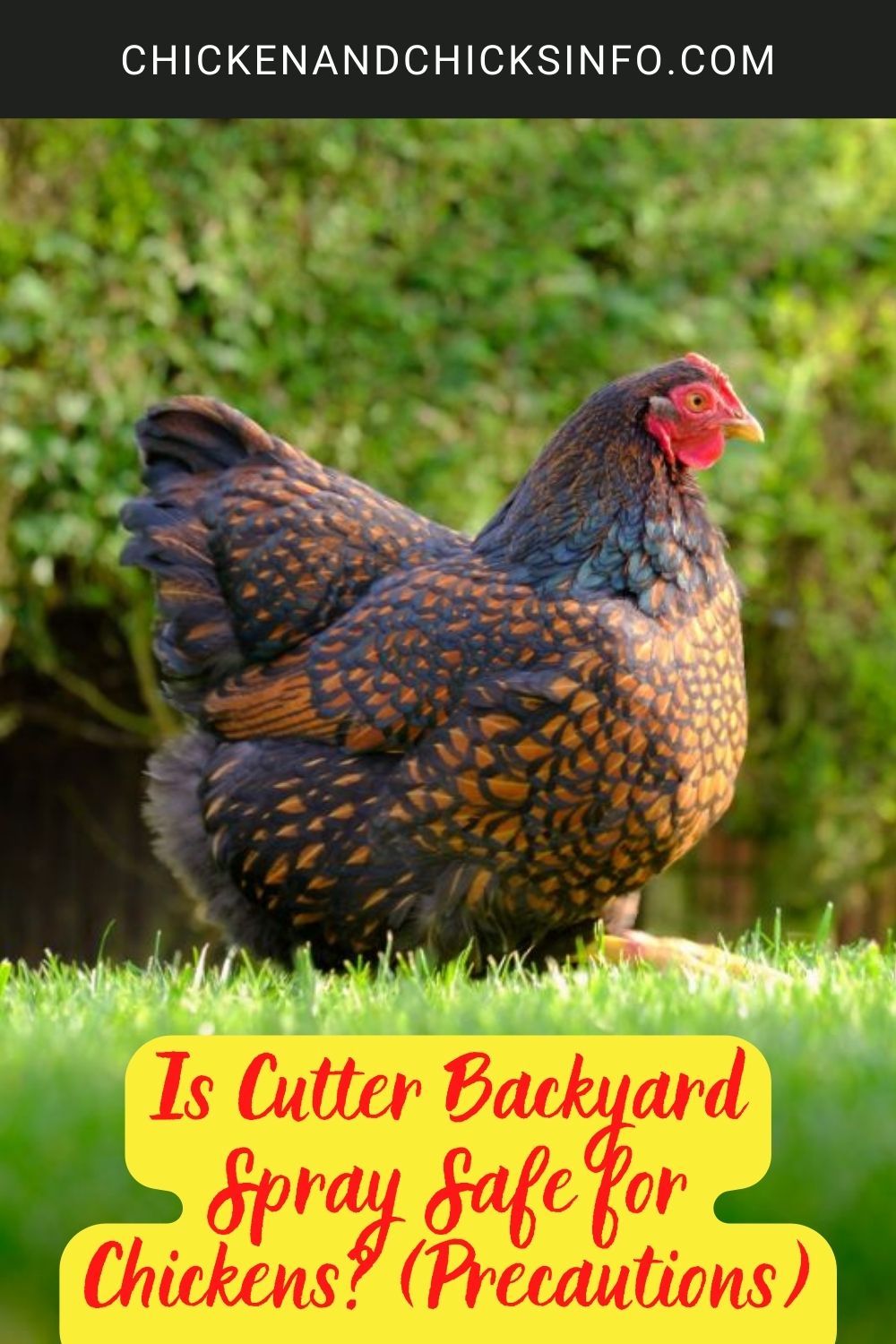
If you’re raising backyard chickens you have to be careful when using pesticides of any kind in and around your yard.
Some products may ‘feel’ safe to use, and I’m sure you’re not going to spray them near your chooks - but how safe are the pesticides you’re using?
In this article, I’m taking a closer look at one of the most popular backyard bug control sprays, Cutter Backyard Bug Control Spray Concentrate.
Jump to:
What Is Cutter Backyard Spray?
Cutter Backyard Bug Control comes in the form of various products, such as sprays, foggers, and candles, and is designed to kill mosquitoes, ants, fleas, and other pests.
The active ingredients of Cutter are listed as:
- Lambda-Cyhalothrin
- Other Ingredients
The ‘Other Ingredients’ isn’t the most helpful! But we know that Lambda-Cyhalothrin is one of the core chemicals used in mosquito control products.
Toxicity to humans is generally said to be unlikely, but some people will experience allergic reactions when coming into contact with Lambda-Cyhalothrin.
How you use Cutter depends on the product in question. The most popular product is the hand spray, and this is simply sprayed around the yard to rid it of pests.
Related - Precautions to be aware of when cleaning out chicken coops.
Is Cutter Backyard Spray Safe for Chickens?

It’s safe to use Cutter in your backyard if you have backyard chickens if you follow the directions of use.
Your chickens must never come into contact with any areas that are wet with treatment. Once dry, Cutter says it’s safe for pets to roam any treated areas.
I know people who use Cutter in their yards, and I’m told it’s pretty effective at killing pests.
For me, that’s an indication that you don’t want your chickens coming into contact with the product.
Looking at the ‘Precautionary Statements’ for Cutter Backyard Bug Control Spray Concentrate it clearly says that it potentially presents a hazard to humans and animals.
It states that you should avoid contact with your eyes or clothing, never swallow any of the fluid, and always wash your hands after using it.
They don’t address the question of how safe it is around chickens, in particular, as they don’t list all the animals that it may be harmful to.
But under the ‘Directions for use’ it clearly says that you should not allow pets to come into contact with an area you’ve treated until it’s dry.
Will Bug Spray or insecticides Hurt Chickens?

If you’re asking the general question of whether or not you can use bug sprays or insecticides around your chickens, there is no one answer.
The correct answer is that you should always check the label carefully on the product you’re using.
If in doubt, I recommend emailing the company, too. I’ve done this a number of times, and they’ve always replied to my questions.
The obvious concern is that bug sprays and insecticides kill bugs (that’s the whole purpose for using them) and chickens will then eat those bugs.
I’m sure you eat or give your eggs away, so you want to be assured that they’re 100% safe.
For this reason, I’ve asked a number of companies this very question if I’ve used their pesticides just so I have peace of mind.
Can I Use Bug Spray in Chicken Coop?
If your chicken’s coop is infested with bugs, such as lice, red mites, or any other creepy crawlies, there are some products you can use.
I’ve seen various coop-safe products, but in my experience, the most effective and safest product that kills bugs without harming chickens is diatomaceous earth.
Diatomaceous earth or DE as it’s usually referred to, is a white powder that is perfectly safe to use around and even on chickens.
In fact, if you’re not already sprinkling some DE into your chicken’s dust baths, you really should start.
I’ve been using DE for years around my home (because I have cats), in my chicken’s coop, and on my chickens and totally stand by it as being the most effective lice and pest killer.
Related - Why diatomaceous earth is so effective at killing ants and other pests.
In Summary
Cutter Backyard Spray states on its directions that it is safe for pets - so chickens - as long as the areas you treat are dry before you allow your chickens to roam.
My best advice is; if you have any concerns, don’t be shy about sending an email to the customer support team for any pesticides or other products you’re using that may pose any risk to your chickens.





